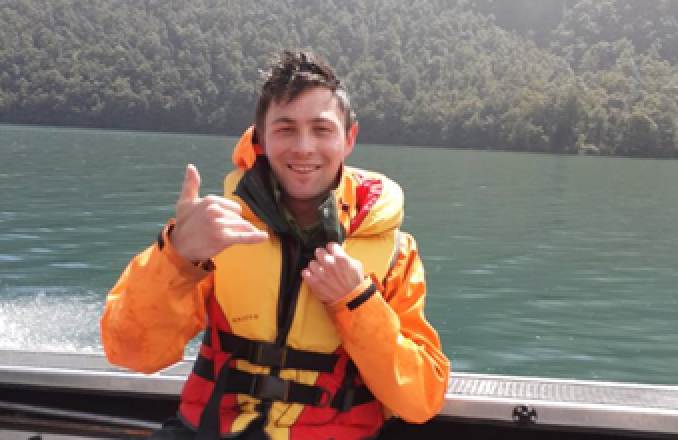Source: Department of Conservation
Based on Rakiura as a trainee ranger, Antz’s story reflects on his upbringing in Whanganui and his journey with te reo Māori.
Here at Te Papa Atawhai/Department of Conservation, we believe that each and every one of us is unique. In our More than meets the eye series, we celebrate and support individual stories and experiences that are unique to our staff.
What is your story?
Ko Aoraki te maunga
Ko Waitaki te awa
Ko Uruao te waka
Ko Rupuwai, Kati Mamoe, Ngāi Tahu, Nga iwi
Ko Arowhenua te marae
Ko Ngati Huirapa te hapu
Ko Antoni Manning tōku ingoa.
I grew up in Whanganui in the North Island, I was very athletic and sporty. As a child I had a big imagination in the forest. I would play games with piwakawaka, make forts, dig holes, and have my own village in a secret location. Mostly, I would spend a lot of time surrounded by trees, birds, and mountains as it was my happy place.
As a teenager I studied outdoor education. I really loved walking over different terrain and through forests, studying map skills and compass assignments. Also, I enjoyed river crossings and looking at different huts on the great walks and backcountry.
This really inspired me to want to work for Te Papa Atawhai. I felt a connection to the forest and birds in the South Island. Remembering back to my childhood, playing in the forest with piwakawaka and learning the ecology of birds and the ecosystem made me want to work for conservation.
Every time I hiked walks around Aotearoa, I would picture myself in this office space surrounded by mountains and beautiful native flora and fauna in the future.
Tell us about your journey with te reo Māori.
My story with te reo began when I joined kapa haka at school. I enjoyed learning waiata and haka. My dad would tell me the ancestral stories of our whānau. I enjoyed sharing my karakia and listening to te reo speakers.
As a teenager I signed up for Māori class and got a bit more involved with my Arowhenua Marae located in Temuka, near Timaru, learning about my iwi and the history.
Although growing up with Māori, I’m still a second-generation learner, and still am learning more te reo. Over the past year now, te reo has been a big part of my life. I am learning more every day and I enjoy attending Māori classes on Rakiura.
How has te reo Māori supported your mahi in conservation?
I think it’s important to learn te reo and to understand it, being a ranger. As a ranger, we are engaging with taonga (native flora, fauna, mānu, insects) every day. For the taonga to thrive, we need to know the native language. It enables us to connect deeper to our mahi and ourselves.
In my ancestral history, Rupuwai was the first iwi to travel to Rakiura. They got here in a waka named Uruao. They were the moa hunters and cave artists. Another iwi called Kati Mamoe arrived and fought with Rupuwai. Kati Mamoe took over and intermarried with Rupuwai. Then Ngāi Tahu arrived and fought. They also took over and intermarried.
Historic remainss and archaeological sites have been sighted by DOC rangers while doing their mahi on Rakiura – this really inspires me to work hard to save our amazing unique ecosystem and fulfils my mana.
Every time I go out in the backcountry, I imagine my ancestors watching over me and to protect me in every step I take. I have this strong conviction that they [my ancestors] help me all throughout my life. This also inspires me to keep learning te reo in conservation, encourage staff to learn te reo and to share my mihi.
What can your mahi look like?
As a ranger every day is different. I could be working with the biodiversity team doing trap maintenance, dotterel counts, spraying invasive weed species, data management/collecting, or other task assignments. I do some front desk visitor centre communication, and Great Walk briefings. I work with the visitor assets team chain sawing firewood, doing hut maintenance, scrub bar, walking tracks maintenance, and construction work.
I like to get involved with any chance I get. I feel very lucky that I get to work with a range of people from across the organisation. It’s awesome to be able to build these relationships and experiences.
What is an exciting opportunity that has opened for you at Te Papa Atawhai?
An exciting opportunity I got at the Department was through the Public Service Association (PSA) as a Ruranga Delegate. As I am passionate about te reo Māori, I attend hui throughout Aotearoa to learn and get ideas about how I can help other Māori members.
He aha te mea nui o te ao. He tāngata, he tāngata, he tāngata. Mauri ora kea ta tou.



